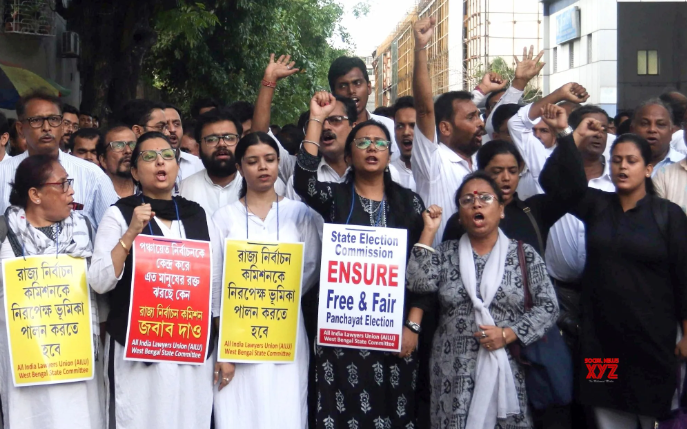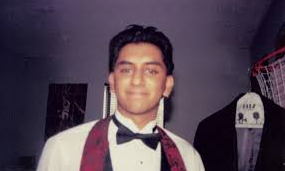
Share your story or learn from one,
Be Heard.
Our
mission
Be Heard is a nonprofit organization committed to shining a light on the world’s most urgent political issues by amplifying the voices of those silenced by injustice. Through storytelling, we expose the real-life impact of systemic failures—especially within the justice system—by publishing powerful, personal narratives. Our platform gives individuals a safe space to share their experiences, anonymously if they choose, helping to inform the public, spark dialogue, and inspire meaningful change.
Paul Gregory House
In 1986, Paul Gregory House was sentenced to death in Tennessee for the murder of Carolyn Muncey. He would go on to spend 22 years on death row, locked away from the world for a crime he didn’t commit.
The case against Paul was shaky from the start—built on unreliable witness statements and flawed forensic evidence. Years later, new DNA testing revealed that the semen found on the victim’s clothes did not belong to Paul, but to her husband. On top of that, multiple witnesses came forward saying Carolyn’s husband had confessed to the crime while drunk.
But even with this powerful new evidence, it took years of legal battles to get Paul another chance. His mother, Joyce House, never gave up—becoming a passionate advocate for her son and a voice for justice reform. With the help of legal teams and organizations like the Innocence Project, Paul's case finally reached the U.S. Supreme Court, which ruled in 2006 that a reasonable jury might not have convicted him had they seen all the evidence.
In 2008, prosecutors dropped the charges, and Paul was released after spending over two decades waiting to be executed for something he didn’t do.
Paul House’s story is not just about one man—it’s a reminder of the deep cracks in the justice system, and why every voice deserves to be heard.
Manujendra Narayan Roy
On an ordinary evening in Salt Lake, Kolkata, what began as a dispute over parking spiraled into something much darker. Advocate Manujendra Narayan Roy, a practicing lawyer at the Calcutta High Court, intervened after his son — a law student — was reportedly harassed by plainclothes policemen. Instead of defusing the situation, the officers turned on Roy. The encounter left him hospitalized with a fractured hip and raised troubling questions about the treatment of citizens by those sworn to uphold the law.
This case is not about a hardened criminal or a late-night altercation. It is about a man whose very profession is defending the principles of justice. A lawyer, stepping in calmly to support his son, became the victim of violence at the hands of authority figures operating outside the very accountability systems meant to guide them. The High Court has since taken notice, ordering the police commissioner to remove the involved officer from duty and preserve CCTV evidence. Yet the fact that such judicial intervention was necessary reveals how fragile the balance of power can be when unchecked authority collides with ordinary life.
Roy’s ordeal is not just his own. It represents the fears of countless people who wonder: If this can happen to a lawyer, what chance does the common citizen have? The incident highlights the ongoing struggle between institutional accountability and the abuse of power — a struggle not unique to India, but felt globally.
At Be Heard, we believe stories like this must not slip quietly into the shadows of legal paperwork and bureaucratic delay. They demand attention. They remind us that democracy and justice are not abstract ideals, but living commitments that must be defended in every street, every neighborhood, and every courtroom.
Advocate Roy’s story is a call to reflection — and to action. It challenges us to stand alongside those who are silenced or mistreated, to amplify their voices, and to remind the world that justice is not a privilege; it is a right.
Lawyers from the Calcutta High Court stage a protest outside the High Court premises in solidarity—symbolizing institutional alarm and a collective plea for accountability
“Silence becomes cowardice when occasion demands speaking out the whole truth and acting accordingly.”
– Mahatma Gandhi.
Artis Whitehead
Imagine being told you will spend 249 years in prison. Not 25. Not even life. Two hundred and forty-nine years. That was the sentence handed to Artis Whitehead, a Black man, after a 2002 robbery at B.B. King’s Blues Club in Memphis.
There was no DNA. No fingerprints. Nothing physical that tied him to the scene. What the state had instead was shaky eyewitness testimony and a story that didn’t quite add up. Still, in a city where racial bias had long shaped policing and prosecutions, Whitehead was found guilty. To many in power, the word of authority outweighed the word of a Black man proclaiming his innocence.
For more than two decades, he lived as inmate number 219232, waking each morning knowing he would never see the outside world again. His pleas of innocence were ignored. His appeals were denied. To most of the world, his case was closed.
But it wasn’t.
As lawyers revisited the case years later, a devastating truth surfaced: the very evidence used to convict him had been fabricated. What was presented to jurors as fact had been manipulated, twisted, and weaponized against him. The foundation of the state’s case wasn’t flawed — it was false.
In 2023, Artis Whitehead finally walked free. The courtroom that once sealed his fate now released him, but not before stealing over 20 years of his life.
His story is not just one man’s tragedy — it is a warning. Racial prejudice and fabricated evidence combined to condemn Whitehead to 249 years. If this can happen to him, how many others remain trapped in cells built not by truth, but by bias and lies?
This is why Be Heard Initiative exists: because silence protects injustice, but voices expose it.
Artis Whitehead
249 years for a lie
This story was submitted anonymously to Be Heard, and edited by Be Heard.
“I never thought raising my hand in class could change the course of my school year. It started when I disagreed politely with a teacher about a historical event. I wasn’t rude, I wasn’t loud — I just challenged the narrative.
The next week, I was called into the office. Suddenly, I was facing a suspension for being ‘disruptive.’ The word cut deep because it didn’t match who I was. What hurt more was seeing others — students who didn’t look like me — argue loudly in class without punishment.
That suspension followed me onto my record. Colleges would see it. Teachers treated me differently afterward. I felt like I had been marked.
I’m sharing this because it showed me how easy it is to silence someone, especially when bias is involved. I want people to know that being unheard doesn’t mean being wrong. Sometimes it means the system is afraid of your voice”
This is not a murder trial or a wrongful conviction carrying the weight of the death penalty. It is a quieter, everyday injustice — a misuse of authority rooted in prejudice that could happen to any student. And yet, its impact is no less real. No matter the scale, every act of injustice matters. Stories like this remind us that silencing a student’s voice is still an abuse of power, and those experiences deserve to be told, shared, and remembered.
This story was submitted anonymously to Be Heard, and edited by Be Heard.
“I was driving home from work on a Wednesday night, the same road I take every day. My music was low, seat belt on, nothing unusual. Suddenly, flashing blue lights filled my rear view mirror. My heart jumped, because I couldn’t think of a single reason I should be pulled over.
I pulled to the side, rolled my window down, and waited. The officer asked for my license and registration but never told me why I’d been stopped. After a long pause, he said my car ‘looked like one they were looking for.’ He shined his flashlight through every inch of my car, even asked me to step out.
After twenty minutes of questions and searching, he finally said I was free to go. No ticket. No explanation. Just a warning to ‘drive safe.’
I sat there for a few minutes before pulling away, hands gripping the wheel, heart still racing. I hadn’t done anything wrong, but for twenty minutes, I was treated like a suspect. That’s a feeling I’ll never forget.”
Not every misuse of power ends with handcuffs or a courtroom. Sometimes it happens in the blink of flashing blue lights, on an ordinary drive home. Traffic stops like this may last only minutes, but the impact can linger much longer.
Being pulled over without cause strips a person of their sense of safety and dignity. It sends the message that who you are — or how you look — is reason enough to be treated as a suspect. These moments are too often dismissed as “routine,” yet they reveal deep problems of bias and accountability within the system.
This isn’t a headline-grabbing trial or a decades-long sentence. It is a quiet example of how authority, when unchecked, can leave lasting fear in ordinary people’s lives. At Be Heard Initiative, we believe these stories matter because every act of injustice, big or small, deserves the same amount of exposure as any other.
Sonny Bharadia: 22 Years Lost, Now Vindicated
Sandeep “Sonny” Bharadia spent more than two decades locked away for crimes he didn’t commit—a burglary, aggravated sodomy, and sexual assault. On May 16, 2025, his life sentence was officially thrown out when all charges were dismissed.
On November 18, 2001, in Thunderbolt, Georgia, a woman returning to her home was violently attacked by an intruder. Before the assault, the victim noticed the man was wearing blue-and-white batting gloves. Sonny Bharadia was more than 250 miles away in Lithonia that day, working on a friend’s car. But eyewitness testimony, coerced or false identification, and incentivized statements turned suspicion into conviction. Sterling Flint—a man who later pleaded guilty to receiving stolen property—identified Bharadia in a second photo lineup after the police had removed Flint’s photo. The victim then picked Bharadia, even though their appearances were very different.
At trial in 2003, there was no DNA evidence tying Bharadia to the crime. The gloves were not tested yet—the technology simply didn’t exist. Years later, advances in “touch DNA” allowed the Georgia Bureau of Investigation to extract DNA from the same gloves. The profile didn’t match Bharadia—but it did match Flint. Even after this, legal barriers stood in his way. A critical photo lineup was missing from the file, and crucial evidence was suppressed. His legal team filed a habeas corpus petition in late 2022. In June 2023, after an evidentiary hearing, a judge agreed his constitutional rights had been violated. In April 2024, his conviction was overturned. Finally, in May 2025, the State dismissed all remaining charges.
Sonny walked out of prison a free man, but not unscathed. The 22 years stripped him of youth, family moments, and opportunities. His mother, aging and heartbroken, stayed by his side. His sister, far away in London, had cut off communication. His Tamil and Gujarati heritage, his upbringing—many pieces of his identity faded while he was inside. Yet he holds onto hope: for reconnection, for rebuilding, and for recognition that every moment behind bars was a moment taken unjustly.
Sonny Bharadia’s story is not just his—it highlights systemic issues many don’t see until they become headline cases: mistaken eyewitness IDs, official misconduct, suppressed evidence, and inadequate legal defense. These failures destroy lives. But reform also grows through stories like his, and through people and organizations who refuse to let the truth be buried.
By now we’re beginning to see that these “crazy out of ordinary events” maybe aren’t so uncommon after all. There are countless, literally countless, stories like Sonny’s. At the end of the day, Be Heard is here to remind the public that these people do exist—and they shouldn’t be forgotten.
This story was submitted anonymously to Be Heard, and edited by Be Heard.
I never thought my whole life could change because of one mistake I didn’t even make. I was young, scared, and alone when the police questioned me. I asked for a lawyer, but they told me it would take too long and that if I just told them what they wanted to hear, I could go home. I believed them. I signed a paper I didn’t understand, and that one signature cost me years of my life.
Prison strips you of more than time. It strips you of family dinners, birthdays, graduations, weddings—moments that never come back. My mom’s hair went gray while I was gone. My little brother grew up without me. And every day I woke up in that cell, I wondered if anyone even remembered I was still in there.
What hurts the most is not just the injustice, but the silence. Once the judge’s gavel came down, it felt like the world moved on, but I was still trapped, still waiting for someone to hear me. Even now that I’m out, I carry those lost years everywhere I go. I don’t tell most people my story because the word ‘felon’ sticks in their minds no matter what the truth is.
I’m sharing this anonymously because I want people to know that wrongful convictions are not just rare headlines. They happen to real people, to ordinary people, to people like me. I survived, but survival is not the same thing as justice.
This anonymous storyteller chose to leave out details of time, place, and identity—and that choice speaks volumes. Prison has a way of stripping away not only years, but voices. It leaves people feeling like their words will be ignored, or worse, weaponized against them. That silence is part of the punishment, part of the weight they carry even after release.
At Be Heard, we recognize that silence. We exist to give space back to the suppressed, to amplify the voices of those who have been muted by injustice. Their names may be hidden, their details blurred, but their truth deserves to echo louder than the walls that once held them.
This story was submitted anonymously to Be Heard, and edited by Be Heard.
I was seventeen the night it happened. I’ll be honest, I was driving a little over the speed limit. Nothing crazy, just a few miles over. I saw the flashing lights in my rear view mirror and thought I’d get a ticket, maybe a lecture, and go home. Instead, I got an experience that still makes my stomach turn when I see police lights.
The officer came up to my window already shouting. He didn’t ask me calmly for my license, he barked orders like I was some kind of criminal. Another cop pulled up, and suddenly there were two grown men surrounding my car, yelling at me. They told me to get out, grabbed my arm hard when I did, and before I could even process what was happening, I was in handcuffs.
I kept trying to explain—it was just speeding, I wasn’t drinking, I wasn’t high, I wasn’t dangerous—but they didn’t care. They laughed at me when I stuttered. They pushed me into the back of the car like I wasn’t a kid terrified out of his mind.
That night changed me. I thought cops were supposed to protect people, even kids who make mistakes. Instead, I felt powerless, humiliated, and small. Now every time I see flashing lights, I don’t think of safety—I think of fear. I think of how quickly things can turn ugly even when you’re not a threat. That one night built a wall between me and the people I was told to trust
This story shows how a single encounter can shape how someone sees authority for the rest of their life. A mistake like speeding does not justify aggression, intimidation, or unnecessary force. Experiences like this plant seeds of fear and distrust in young people who are just starting to step into the world. We share these stories to remind the public that behind every statistic or arrest report is a person—someone whose trust in justice may have been broken forever.
Share Your Story?
If you would ever like the opportunity to share your story then we would be honored to be your voice-anonymous or otherwise. If you do choose to share your story, you will be able to review the written piece before publishing on Be Heard.













